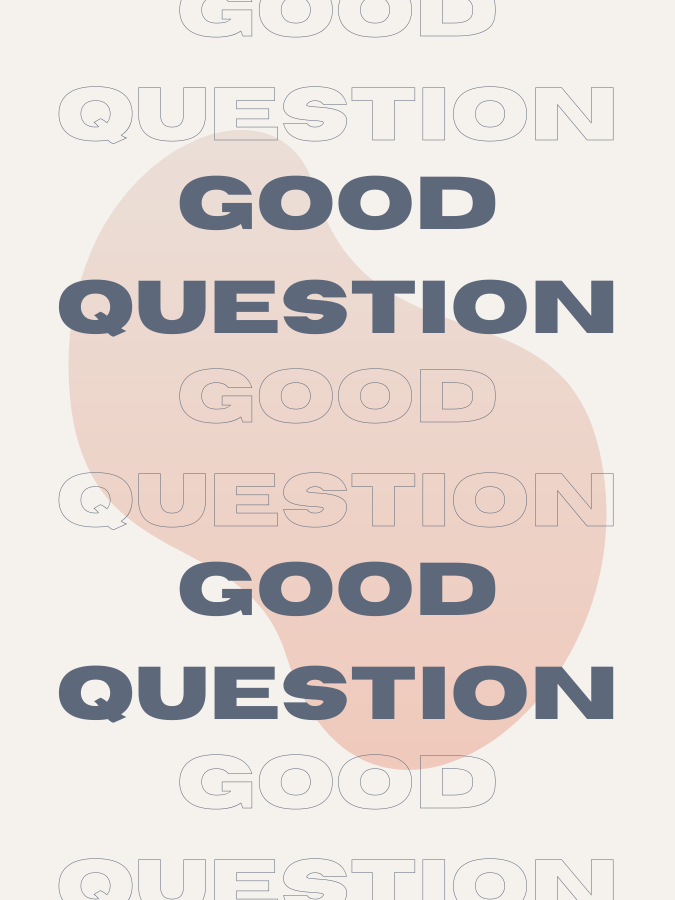
How can I navigate talking about my virginity?
What is your advice for someone who is a virgin in their early 20s? How do you get over the perception that “you’re the only one,” and how do you confidently tell a potential partner about your lack of sexual experience without feeling embarrassed?
Thanks for this question. It’s a brave and relatable question—even if it feels like “you’re the only one.” I speak from experience when I say that you’re not alone. I was a virgin in my early 20s, and I am confident there are people of all ages reading this who share your story. There is no right age to engage in sexual activity (outside of consenting age, of course).
“There is no right age to engage in sexual activity (outside of consenting age, of course).”
The answer to your question may sound simple, but here it is: Be honest with potential partners about your sexual experience, even if there’s not a lot to tell.
For many of us, sex has been a taboo topic, and so it can feel strange talking about it with friends or partners or even our doctors. But when it comes to talking about sex confidently, it really is a fake it until you make it situation. (The “talking about it” part, that is.)
We have to have hard and seemingly embarrassing conversations for them not to be hard and embarrassing anymore. Does that make sense? By putting on a brave face and telling the truth, we normalize our sexual experiences (or lack thereof) for ourselves and our potential partners. The payoff is that we gain a bit more confidence with every conversation.
“By telling the truth, we normalize our sexual experiences (or lack thereof) for ourselves and our potential partners.”
Your partner may have questions at first, and that’s okay. Allow space for those questions and refrain from setting expectations about their response. But consider that this could also deepen any potential relationships. Especially when you are ready to have sex, communication and transparency can create room for more mindful and fulfilling sex.
I’d encourage you to be confident, even if it feels scary or uncomfortable at first. Remember, our sexuality and experiences—whether we have many or few—aren’t something to be embarrassed about.
I’d also like to challenge the notion of “virginity.” What is a virgin? Where does this label come from? What does it say about how we view sexuality, and why is it so significant?
I, too, called myself a virgin, and it’s a popular label that’s been used throughout history and across cultures. Even today, turn on a rom-com or flip through an issue of Cosmo, and you’ll find the label is freely assigned to anyone who’s yet to have heteronormative penetrative sex.
But virginity is a social construct that can be traced over centuries. Historically, it was about establishing paternity. Men wanted to ensure their bloodline and family name was passed down. A virgin wife meant there were no questions about paternity. This also meant that virgin women were commodities, which was especially useful for their families when they were sold off into marriage.
In religious settings (both past and present), virginity is also a sign of purity and morality, while promiscuity is considered shameful. Since 1990, more than two billion dollars has been spent on abstinence-only and abstinence-until-marriage education in the United States despite ongoing criticism that these programs have little scientific-backing and are mostly founded on religious principles.
Even with its long-standing usage, the concept of virginity is limiting for a few reasons. First, the label maintains a narrow definition of sex—penis-in-vagina intercourse. But sex looks different for different people, and virginity is almost always exclusive to heteronormative cis encounters. This excludes many people and defines what sex is and isn’t in one fell swoop.
“The label maintains a narrow definition of sex. But sex looks different for different people.”
The virgin label can also further perpetuate sex as performance-based or something to be achieved. The negative language claiming virginity is something we “lose” can make us feel ashamed when we finally have sex, which is especially true in cases without consent.
Finally, there is a connotation that lack of sexual experience at a certain age is frowned upon as if we should have all “lost our virginity” as teenagers. We can again look to media to confirm this. Popular titles like “The 40-Year-Old Virgin” and “Easy A” are just two movies from the last two decades that further this narrative.
“Ditching the ‘virgin’ name tag means…you get to have autonomy over your body.”
All this to say, it’s okay to stop using the virginity label for ourselves and others. This label doesn’t define you. Ditching the “virgin” name tag means you have nothing to lose or prove. You get to have autonomy over your body and decide when it is right for you to engage sexually with others. Hopefully, this mindset can help you feel more secure and confident about who you are and the sexual experiences you have (and haven’t) had.
For further readings about the history of the virginity construct, check out “Virgin: The Untouched History” by Hanne Blank and “The Purity Myth” (read an excerpt here) by Jessica Valenti.
Read more Good Questions here. Have something on your mind? Click the button below 👇 ✨
RELATED READING
Kayti Christian (she/her) is an Editor at The Good Trade. She has a Master’s in Nonfiction Writing from the University of London and is the creator of Feelings Not Aside, a newsletter for enneagram 4s and other sensitive-identifying people. Outside of writing, she loves hiking, reading memoir, and the Oxford comma.

